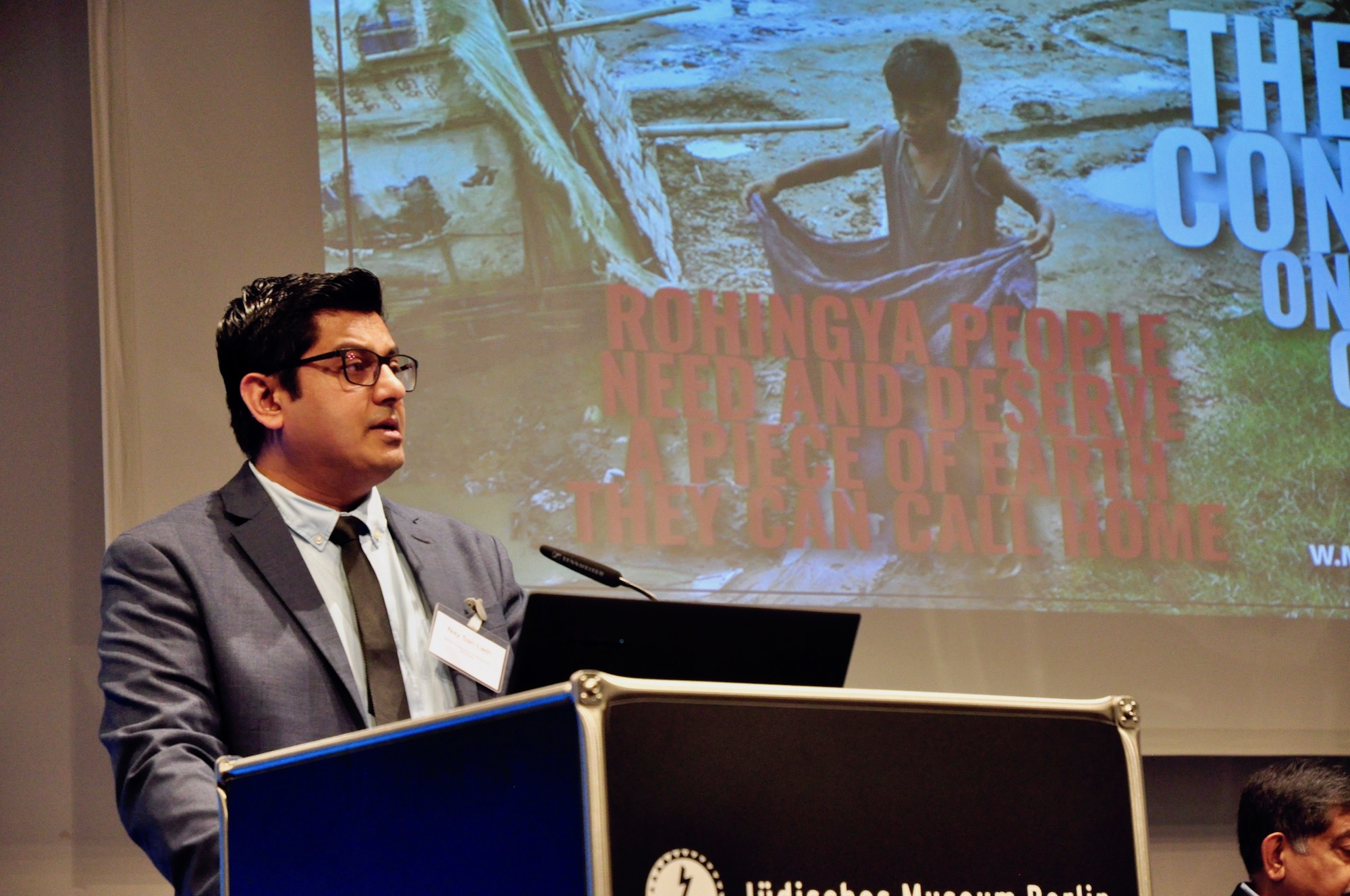Interview | What's happening in Arakan?

Mepa News conducted an exclusive interview with Rohingya activist Ro Nay San Lwin, on the latest situation in the region.
Mepa News conducted an exclusive interview with Ro Nay San Lwin, an Arakanese activist, on the latest situation in the region.
Ro Nay San Lwin, one of the founders of the Free Rohingya Coalition, discussed the latest developments in the region where the massacre of Rohingya Muslims continues.
- The Muslim Rohingyas have faced persecution for years. The last time they were massacred and forced to flee their country was in 2017. Could you tell us what was the general situation for Rohingyas after 2017 and before the coup/civil war in Myanmar in 2021?
The Rohingya situation has never improved; it is getting worse day by day. After the genocidal violence against the Rohingya in 2017, The Gambia filed a case at the International Court of Justice (ICJ). The court ordered provisional measures in January 2020. Despite this order, the situation has remained unchanged. The military occasionally killed Rohingya until the coup. After the coup, while the Arakan Army (AA) launched offensives against the military, there was an on-and-off ceasefire. However, since last November, the situation has deteriorated further. In the recent months since the end of March this year, the Arakan Army (AA) has openly targeted the Rohingya, killing more than 2,000 people and burning at least 8,500 homes in Buthidaung Township.
Since early June, the AA has been advancing in Maungdaw Township, a border town on the Myanmar–Bangladesh border. Although the AA claims to be fighting against the military, Rohingya villages have been targeted. In June and July alone, more than 100 Rohingya were killed. The most significant massacre occurred on August 5th, when more than 200 Rohingya were killed and many injured after drone bombs were dropped while they were waiting to flee to Bangladesh.
Now, as the AA controls the territories, the Rohingya are under their control, and numerous human rights abuses are ongoing.
- How many Rohingya Muslims still live in Myanmar and how many are in the diaspora in Bangladesh, etc.?
Inside Rakhine State (also known as Arakan State) in Myanmar, about 600,000 Rohingya remain. Of these, 130,000 are confined to so-called Internally Displaced People (IDP) camps, which are effectively concentration camps. The rest live in what is essentially an open-air prison.

In the diaspora, there are about 2 million Rohingya. In Bangladesh alone, there are 1.2 million, with the rest residing in Middle Eastern countries, Malaysia, India, and elsewhere.
- How did the recent violence in Rakhine State start? Why are the Myanmar junta and the Arakan Army targeting Muslim Rohingyas?
The Arakan Army (AA), composed predominantly of Rakhine Buddhists, believes they are under Burmese colonial rule. Arakan was an independent kingdom until 1784, and the AA's intent is to reclaim the land or gain greater autonomy. As a result, the AA has been fighting against the military. However, both the Myanmar military and the AA share the same attitude towards the Rohingya. Both groups, being Buddhists, do not want Rohingya Muslims in Arakan State. The Rakhine people have supported the military during periods of massive violence against the Rohingya, and even during normal times, they have opposed the Rohingya.
While the AA is fighting against the military, its treatment of the Rohingya is effectively helping to complete the Myanmar military's agenda.
- Could you describe in detail the current situation of Rohingya Muslims in the region? What are they facing, are they trying to flee, are the roads to Bangladesh open?
As I described above, the Rohingya in Arakan are living under two different conditions. One group is confined to what are essentially concentration camps, while the remaining population lives in what is effectively an open-air prison. There are no human rights for the Rohingya, who are considered illegal immigrants from Bangladesh.
Currently, all of them are facing extreme hardship in their struggle for survival. It is a humanitarian catastrophe, with regular abuses, including sexual violence.
Bangladesh enforces a strict policy against allowing the Rohingya to enter. As a result, the Rohingya have nowhere to go. Some have managed to enter Bangladesh illegally, but some were sent back after arriving there.
Most of the Rohingya are now in areas controlled by the Arakan Army (AA) and are effectively living like prisoners. Youths are being targeted, and forced conscription is also ongoing.
- How can people help Muslim Rohingyas and what is the message of Muslim Rohingyas to Turkish people?
The most crucial need for the Rohingya remaining in Arakan State is humanitarian aid. None of them have a source of income, and there are no humanitarian agencies present.
Türkiye was the first country in the world to respond to the Rohingya crisis in 2012 when they were driven from their homes and placed in camps.
Now, we would like to request that Türkiye intervene in the situation, at least by sending humanitarian aid to the Rohingya people who are struggling to survive. In many places, a lack of food has led to widespread starvation.
Additionally, Türkiye, as a nation, can take action against both the Myanmar military and the Arakan Army (AA). Filing a case in Turkish courts and taking necessary legal action would be very helpful.
Most importantly, it is essential to empower Rohingya youth so they can return to their homeland in Arakan with dignity.
Source: Mepa News
